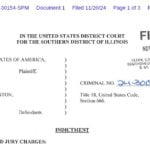SPRINGFIELD, IL. (ECWd) –
On October 7, 2016, the 3rd Illinois Appellate Court overturned the Illinois Commerce Commission’s decision that Clean Line Energy Partners was a public utility, and remanded it back for further proceedings.
Some facts from the case:
- Rock Island admitted that the wind generators used in its energy and financial simulation models are based on predictions and do not yet exist.
- Currently, Rock Island does not have any transmission customers; the only way it could serve a customer is by building the project.
- Rock Island does not have a process to recover its costs from ratepayers and therefore must sell capacity through negotiated contracts.
- Michael Skelly, the president of Rock Island and Clean Line, testified that on the date the application was filed, Rock Island did not own, control, operate, or manage any transmission plants, equipment, or property in Illinois. He also stated that as of the date of his testimony, Rock Island still did not own property in Illinois.
- Rock Island project is not currently included in the PJM regional transmission plan because none of the project’s capacity has been contracted and no potential generators have obtained rights to buy service on the line.
- Commission staff economist, Richard Zuraski, noted that a competitive electricity market already exists in Illinois and stated in his report that the proposed project was unnecessary.
- Staff concluded that Rock Island “is asking the Commission to *** grant it a CPCN so it looks like a ‘public utility’ for purposes of condemning private property to build its line, while at the same time it plans to offer only a token percentage of that line’s capacity for ‘public use.’ ”
The Commission’s decision was challenge on the grounds that:
- the findings of the Commission are not supported by substantial evidence,
- the Commission lacked jurisdiction to enter the order or decision,
- the order or decision is in violation of the state or federal constitution or laws, or
- the proceedings violated the appellant’s constitutional rights.
The Court determined (starting on page 8 of the decision) that Rock Island failed to meet both prongs of satisfying the definition of “public utility”, it owned no property in the State of Illinois, and under the circumstances presented Rock Island did not present a “public use” for sales of its product.
The Court concluded Rock Island was not a public utility, the Commerce Commission lacked authority to issue the certificate of public convenience and necessity to Rock Island, and reversed the Commissions finding directing it enter an order consistent with the Court’s decision.
Download decision (here), or read it below:
[gview file=”http://www.illinoiscourts.gov/Opinions/AppellateCourt/2016/3rdDistrict/3150099.pdf” save=”1″]
.
Please consider a donation to the Edgar County Watchdogs.
[wp_eStore_donate id=1]
.







2 Comments
Patty Russell
Posted at 07:10h, 11 OctoberThis is the first of two projects proposed to the ICC. In the second project application Clean Line Energy used the fact that it had satisfied the qualification as a current public utility to access an expedited ruling in the Grainbelt Express project which crossed the entire state. Next question is how all of these land owners who stood to be impacted and paid to maintain the law as written be repaid the millions spent in the original ICC hearings and now through both Appeals court hearings. GBE Appeals Court hearings are still being scheduled.
G.Barraclough
Posted at 04:08h, 08 OctoberSounds like just another Kelo scam. Just what Illinois needs. And the eventual outcome will be the same. Millions of dollars made by the attorneys, politicians and ‘investors’, land taken and nothing ever built.